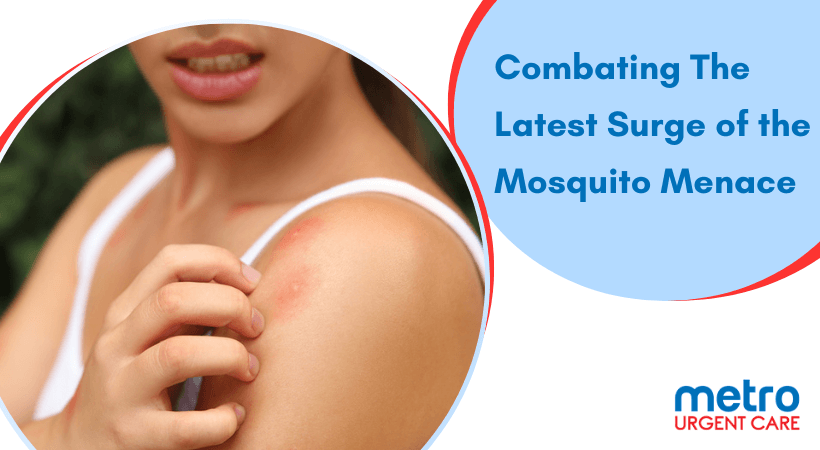


Mosquito season typically starts with the onset of spring, peaks during summer, and gradually recedes with autumn. The onslaught of mosquitoes is felt with rising temperatures and the first few showers as they thrive in warmer weather and need rainfall for the eggs to hatch. With climate change leading to increased precipitation, the mosquito menace has surged. Higher rainfall means more habitat for the estimated 200 species of mosquitoes found in the United States, resulting in their rapidly increasing population.
The mosquito menace has impacted the human population too. West Nile, the deadliest mosquito-borne disease in the country, is now considered endemic by public health authorities, with nearly 1,035 cases reported in 2022 with as many as 79 deaths. Read on to learn more about mosquito bites and tips to prevent them.
Mosquitos are insects that belong to the fly family. While the male mosquito has a shorter lifespan of 7-10 days, the female can live much longer. Both feed on nectar, but the female additionally feeds on blood for added protein to develop eggs.
Mosquitos are found in almost all regions of the world. They are active night and day, indoors and outdoors, and need heat and moisture to reproduce. Their habitat and breeding place is stagnant water. It can be an unused pool to rain puddles and even water-filled discarded toys.
Female mosquitoes have long tubular-like structures called proboscis, which puncture your skin and feed on your blood. When they bite, their saliva is injected into your body, causing the tell-tale bump on the skin.
Mosquito bites are small itchy bumps on your skin. They may not be life-threatening but can cause immense discomfort for some time. However, if you have a severe allergic reaction, you may be experiencing Skeeter syndrome to a mosquito bite. It is a rare condition in which you get bigger inflamed bumps as an allergic reaction to the protein in the mosquito’s saliva.
Mosquitoes kill over 700,000 people globally and cause millions to fall ill annually. They can transmit diseases when they bite, as they can carry bacteria, viruses, and parasites in their saliva. The common mosquito-borne diseases are:
Since several mosquito-borne diseases have no treatment and only a few have vaccines, they cause a large number of fatalities.
Following are some useful tips on how to prevent mosquito bites and help you stay protected from mosquitoes.
In most cases, you may not need medical attention for an insect bite. The inflammation, swelling, and discomfort usually subside on their own. But if you are allergic to mosquito bites, you may need Skeeter’s syndrome mosquito bite allergy treatment at an urgent care center near you, especially if you experience large areas of severe swelling that hamper your mobility. Other insect bite symptoms may include itching, pain, fever, blister formation, shortness of breath, and change in skin color and texture that requires urgent care treatment.
Our licensed physicians are committed to providing prompt, affordable, and quality medical care for a wide range of ailments, including insect and mosquito bite-related allergies and infections, seven days a week. You can be assured of the highest quality services leading to faster recovery at our center. For more information, contact us or visit our walk-in clinic in Chicago, IL today.